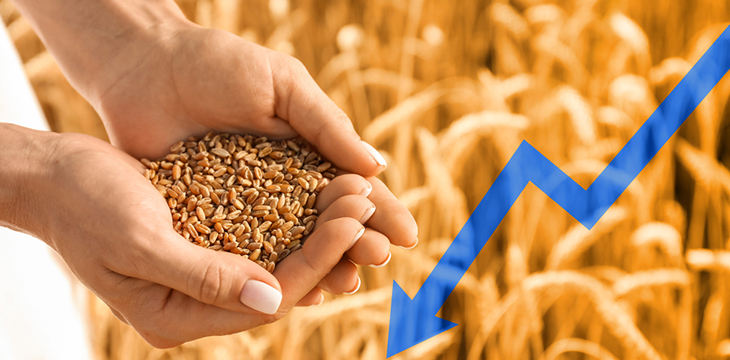|
Getting your Trinity Audio player ready...
|
Nigeria is experiencing one of its worst food crises ever. Bad governance, rising insecurity, and hyperinflation have all contributed to the crisis, and according to Obinna Iwuno, blockchain could be the solution.
According to the UN’s Food and Agriculture Organisation (FAO), Nigeria is now home to the world’s highest number of food-insecure people at 31.8 million. FAO warns that this number could rise to 82 million by 2030 unless the government urgently addresses the situation.
President Bola Tinubu’s government declared a state of emergency on the country’s food insecurity a year ago. Since then, a raft of measures has been implemented, from delivering food aid to the most affected to providing free fertilizer to boost production. In some states like Niger, the local government has ventured into cultivating the vast public land to contribute to the national food basket. Some state governments also provide farmers with subsidized inputs, seeds, and credit facilities.
However, boosting production doesn’t address the entire problem if the supply chains remain broken. According to FAO, 30-40% of all food produced globally is lost along the supply chain, and in developing economies like Nigeria, this percentage is much higher.
This is where blockchain comes in, says Iwuno, the president of the Stakeholders in Blockchain Association of Nigeria (SiBAN).
“By recording every transaction and movement on the blockchain, stakeholders can verify the authenticity and quality of products, thereby reducing the risk of fraud and ensuring food safety,” he told one local newspaper.
Blockchain enhances transparency and traceability in supply chains, enabling stakeholders to track products from farm to plate. On-chain data is also accessible instantly, enabling data-powered decision-making and faster response to changes in demand or disruptions.
In Nigeria, blockchain can help curb hoarding, which the government says has also played a big part in the crisis. Earlier this year, Agriculture Minister Abubakar Kyari accused the country’s wealthiest traders of stockpiling grains to drive up demand and, consequently, their prices. President Tinubu pledged to tackle hoarding, but little has changed for Nigerians.
With blockchain, the government can easily keep track of the food in the supply chain, making it easier to crack down on hoarders.
Blockchain for Nigeria’s beleaguered agriculture industry
Beyond the supply chains, Iwuno believes blockchain can enable farmers to access financial services and credit facilities. Financing remains one of the most significant challenges for small-scale farmers in Nigeria and the rest of Africa. This has improved recently, with more fintechs targeting the marginalized farmers in remote regions. Mobile money has also improved financial inclusion, but much more can still be done.
Isaac Garba, a local AI expert, concurs. “With [blockchain], farmers in Africa will be able to send and receive funds from business associates both within and outside of their countries without delay or fear of fraud as a result,” he told the paper.
Blockchain is making a mark in agriculture in the rest of the region. In East Africa, farmers are using the technology to prove that their crops have been cultivated in accordance with sustainable agricultural practices, which has become a requirement for those targeting the more developed Western markets.
However, regulators need to provide clear guidelines for blockchain to fully impact agriculture in Africa. Farmers, most of whom are not tech-savvy, are unlikely to integrate a technology that they fear could be clamped down by the government.
“The federal government of Nigeria will continue missing out a lot on [blockchain opportunities] the more it continues to delay coming up with clear regulations for the industry,” Iwuno tells CoinGeek.
Watch: Digital Nigeria 2023 highlights Nigeria’s effort to leapfrog into the modern world

 02-19-2026
02-19-2026 




